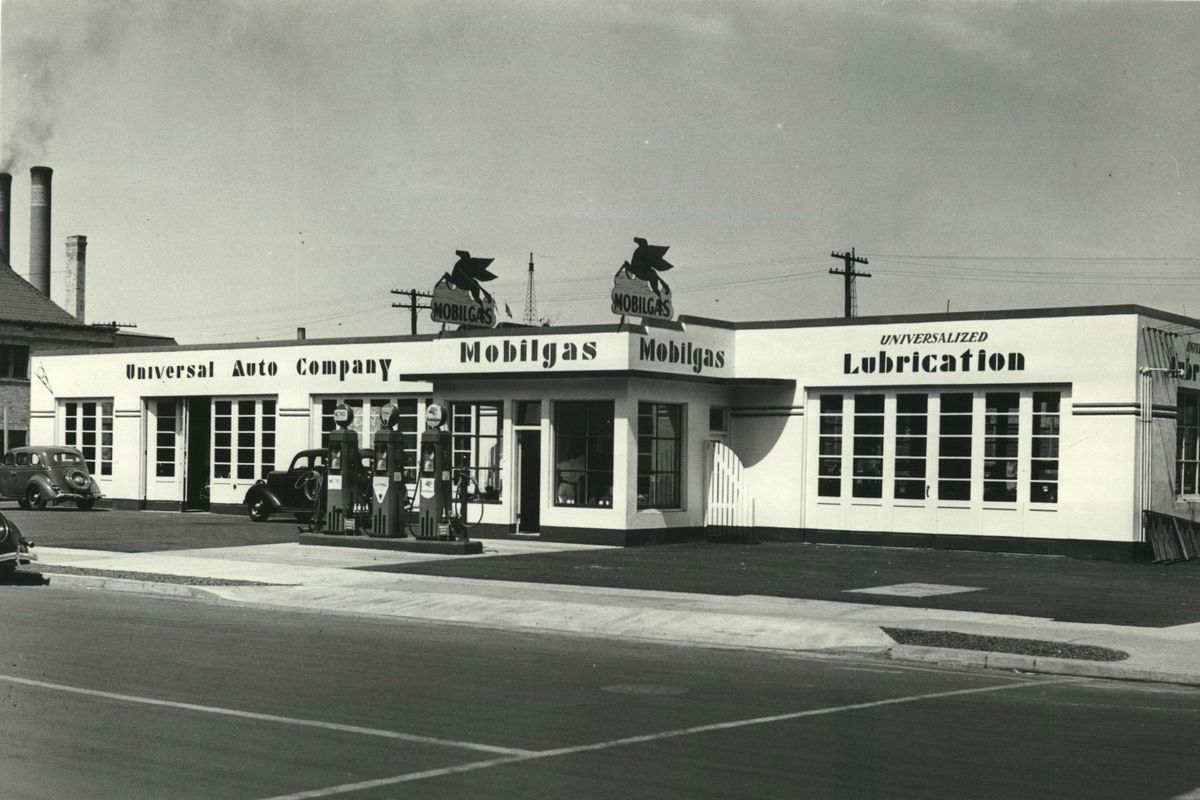Then and Now: Universal Auto Company

Stretching from the Model T to the Model A era, the Universal Auto Company was a Ford car dealership that began operation on Havermale Island. The name was likely borrowed from Ford’s nickname for the Model T as the “universal car,” referencing the car as a platform that could serve as a passenger car or adapted as a truck or cargo van. Fifteen million Model Ts were sold between 1908 and 1926.
The local company started on Havermale Island around 1917 with Joseph Stenstrom as president. Stenstrom had worked in the automotive business for several years, first listed in the newspaper as a manager in 1911 at the Hodgins-Fosdick Motor Company, which sold Chalmers brand autos.
A few years after opening, Phillip J. Garnett became the company president. The company also sold Fordson tractors and Lincoln automobiles.
Around 1918, Universal built a showroom and shop on the 700 block of Second Avenue and would eventually have buildings on both sides of Second. The city’s first “auto row” stretched through the downtown area between Sprague and Third avenues. The stretch was home to dozens of car dealers, parts houses and repair shops.
Garnett’s dealership competed with the F.A. Williams Ford nearby on First Avenue.
Universal Auto was a part of the explosion in private car ownership leading to a decrease in ridership on streetcars and passenger trains. Spokane’s streetcars disappeared by 1936 and passenger trains were in continuous decline until the major downtown depots were removed for Expo ’74.
Like many other businesses during the Great Depression, Universal Auto closed down in August 1937. Although Garnett survived the financial downturn , he said it was a prolonged strike by the mechanics’ union that led to the closing.
After announcing the closure, a committee of nearly 80 employees told Garnett that they would all work for nothing for a month if it would help the situation.
Only three union members picketed while everyone else came to work. “If three men, aided and abetted by outsiders, can put between 70 and 80 people out of work, in my opinion the people of Spokane had better wake up,” he told The Spokesman-Review.
“I closed the places myself to conserve the assets for the benefit of creditors,” said Garnett. The company had more than $21,000 in short -term loans coming due, leaving 30 trucks and a hundred cars on the lot.
Garnett died in 1957 in San Francisco.